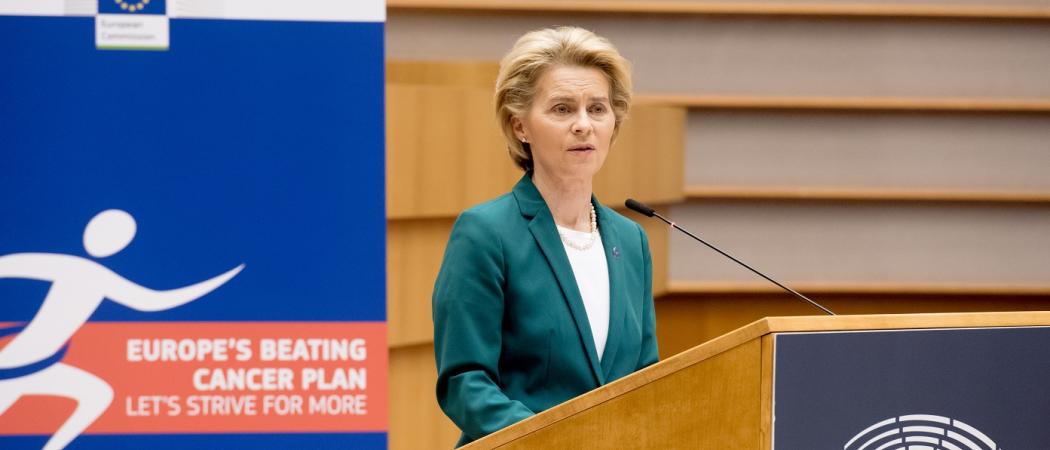Commission chief Ursula von der Leyen is looking to build support among member states for overarching strategy to fill the gaps that exist at a national level in prevention, diagnosis, treatment and after care of cancer patients

Ursula von der Leyen. Photo: European Commission
The EU has launched a consultation to scope out a broad campaign against cancer, the biggest killer in Europe after cardiovascular disease, promising investments for better prevention, improved diagnosis and better support for people who survive cancer
Following the consultation, the commission said the ‘Beating Cancer plan’ will get off the ground later this year.
European Commission president Ursula von der Leyen, announcing the consultation in Brussels, said she was only 13 when her 11-year-old sister died of cancer.
“This is personal. It’s personal for me, and it’s even more personal for [EU health commissioner] Stella [Kyriakides] who went through cancer and survived,” said the president.
“There’s much more we can do than we’re currently doing,” von der Leyen said. “The range of potential actions is incredibly wide.”
But because health policy is in the hands of national governments, it’s not clear how comprehensive a Brussels-led programme can be.
And with EU officials still in negotiations with national governments over the next seven-year budget, the amount of funding is not known at this stage.
There are 3.5 million cases of cancer diagnosed in the EU each year and there is increasing concern about the economic costs, which have risen to more than €100 billion a year.
There also are huge disparities in access to cancer services across the EU, Kyriades noted. A recent Eurostat study showed that in one member state, 82 per cent of women aged 50-69 had a mammogram within the last two years, while in another the figure stands at 0.2 per cent. “This is a staggering difference and it is unacceptable in the EU in 2020,” Kyriades said.
“This is exactly the type of problem that the Beating Cancer Plan aims to resolve. We want to see the plan tackle every key stage of the disease – prevention, diagnosis, treatment, life as a survivor, palliative care, research and innovation.”
The first step, in the consultation process, will be to identify the gaps and take stock of what is already being done, and what is needed to do.
Four out of every ten of the 3.5 million cases of cancer diagnosed in Europe each year are thought to be preventable. “We need to do more on prevention – we need to focus on tobacco control, exercise and a healthier diet and highlighting the need to increase vaccination coverage,” said Kyriakides.
Currently, only 3 per cent of health budgets on average are spent on public health measures and prevention campaigns.
The Horizon Europe mission on cancer, to be led by Walter Ricciardi, an Italian doctor, is also a vital part of the discussion, said Kyriakides. However, innovation is pointless unless it is accessible to patients. “The Beating Cancer plan will help to drive innovation, but it must also help to deliver it,” she said.





 A unique international forum for public research organisations and companies to connect their external engagement with strategic interests around their R&D system.
A unique international forum for public research organisations and companies to connect their external engagement with strategic interests around their R&D system.